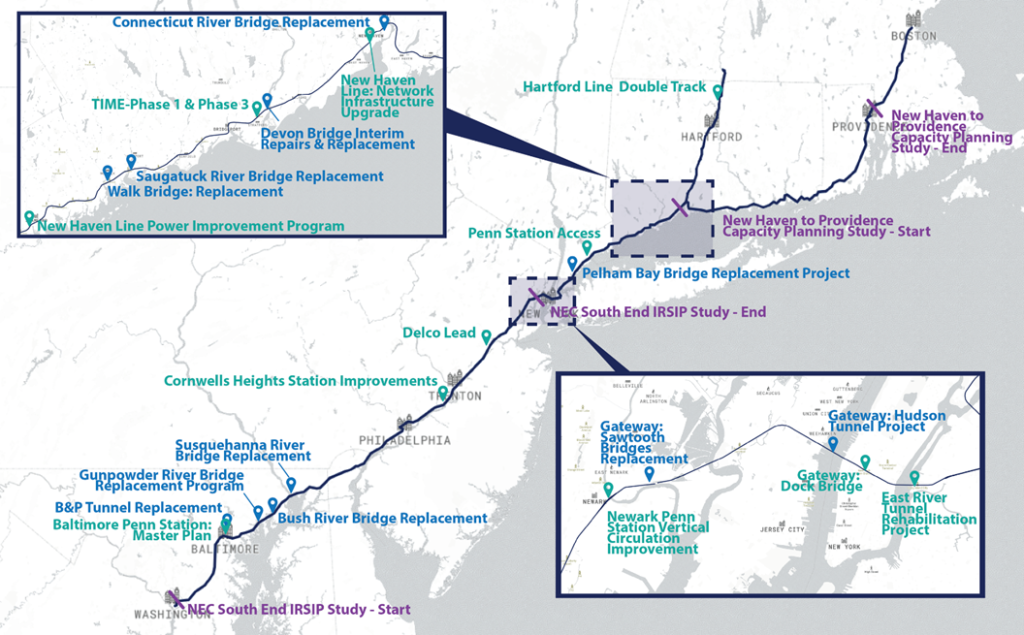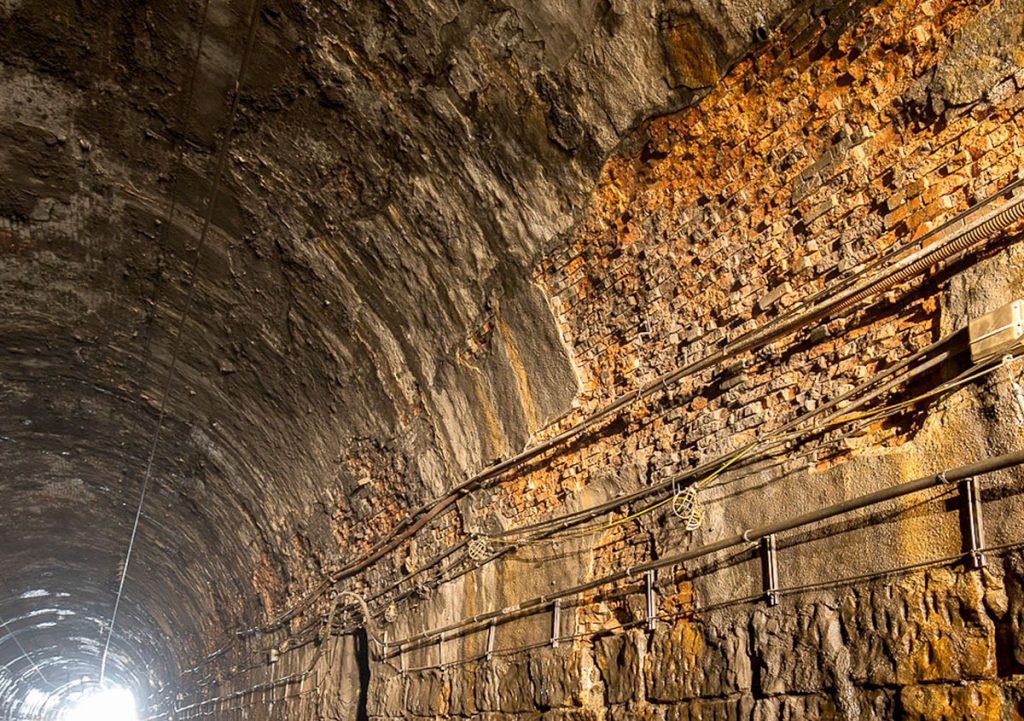
The Biden administration just announced $16.4 billion to upgrade the Northeast Corridor’s rail infrastructure – here’s why that’s going to impact a lot of people.
The Biden administration’s Infrastructure Law, which passed in November 2021, earmarked $66 billion for rail investment – the most significant (and well overdue) investment in passenger rail since Amtrak was created in 1971. The $16.4 billion isn’t more money being spent; it’s coming out of the Infrastructure Law budget. And it’s going to pay for 25 passenger rail projects on Amtrak’s Northeast Corridor.
The investments announced today will rebuild 12 tunnels and bridges that are over 100 years old; upgrade tracks, power systems, signals, stations, and other infrastructure; and advance future projects to significantly improve travel times by increasing operating speeds and reducing delays.
Why the Northeast Corridor?
The Northeast Corridor runs from Boston to Washington, DC. It’s the most heavily traveled rail corridor in the US in a region representing 20% of the US gross domestic product. If the Northeast Corridor shut down for a single day, it would cost the US economy $100 million in lost productivity.
But there hasn’t been significant investment in the Northeast Corridor in generations. The Northeast Corridor that exists today is the product of investments that date back to the 1830s, and many of its existing bridges and tunnels were built in the early 20th century.
What’s getting an upgrade

The White House-released map above shows the awarded projects. Two standouts that are going to make a significant impact are:
Frederick Douglass Tunnel in Maryland is relied upon by around 24,000 Amtrak and Maryland Area Commuter passengers daily. The 150-year-old tunnel (pictured below) is the largest Northeast Corridor bottleneck between Washington and New Jersey, and $4.7 billion will be spent in a phased funding agreement to replace it. The electric upgrade (the main image) will increase speeds from 30 mph to 110 mph and reduce delays on the entire Northeast Corridor.

Penn Station Access in New York City will receive $1.6 billion in a phased funding agreement to repair and rehabilitate 19 miles of the Amtrak-owned Hell Gate Line, including tracks, bridges, and signals. The project will increase Amtrak service, introduce Metro-North service (which currently only leaves from Grand Central) to Penn Station, and cut local transit travel time from the Bronx to Manhattan by as much as 50 minutes.
US Transportation Secretary Pete Buttigieg said, “These investments will make our busiest passenger railroad safer, faster, and more reliable, which means fewer delays and shorter commutes for the 800,000 passengers who rely on the Northeast Corridor every day.”
Electrek’s Take
My initial reaction to this news was, “Well, it’s about time.”
Amtrak trains on the Northeast Corridor emit up to 83% less greenhouse gas emissions than car travel and up to 72% less greenhouse gas emissions than flying. More people will take trains if already-cleaner train travel becomes more efficient, faster, and more frequent in the Northeast. Plus, you can only electrify with the infrastructure to support it.
Read more: Check out Amtrak’s new state-of-the-art Airo trains
Photos: Amtrak
If you’re considering going solar, it’s always a good idea to get quotes from a few installers. To make sure you find a trusted, reliable solar installer near you that offers competitive pricing, check out EnergySage, a free service that makes it easy for you to go solar. It has hundreds of pre-vetted solar installers competing for your business, ensuring you get high-quality solutions and save 20-30% compared to going it alone. Plus, it’s free to use, and you won’t get sales calls until you select an installer and share your phone number with them.
Your personalized solar quotes are easy to compare online, and you’ll get access to unbiased Energy Advisors to help you every step of the way. Get started here. –ad*
Author: Michelle Lewis
Source: Electrek



